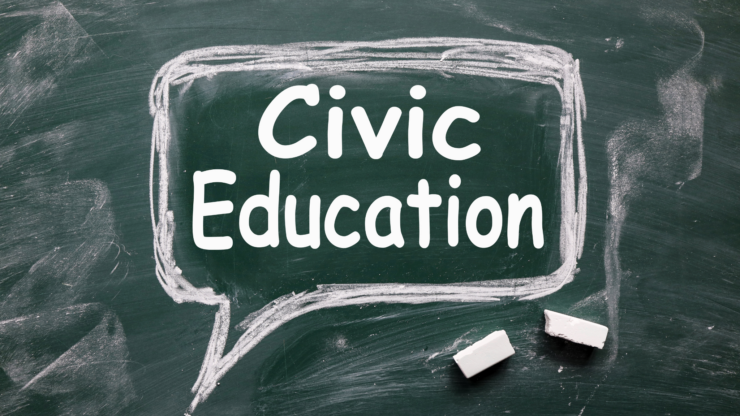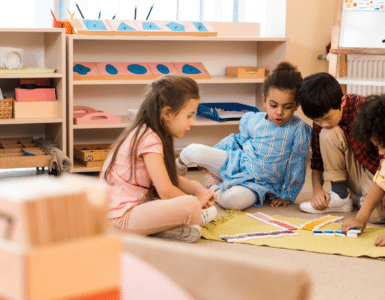As parents, we all want the best for our children. We dream of their success, their bright future, and their ability to thrive in a rapidly changing world. But what happens when the very system designed to educate and empower our kids falls short?
The recent release of the National Assessment of Educational Progress (NAEP) report on History and Civics scores has sparked concerns about the state of American education. The continuous decline in NAEP scores across grade levels and subjects raises questions about the future of civic engagement and informed decision-making among citizens.
The COVID-19 pandemic has only amplified the flaws and challenges that have long plagued our education system. Traditional teaching methods, limited by curriculum constraints and standardized testing pressures, have proven ineffective in preparing our children for the demands of the 21st century.
In this eye-opening article, we delve into the insights and expertise of Dr. Kimberly Berens, an esteemed scientist-educator and advocate for evidence-based learning solutions. Dr. Berens sheds light on why students fail and provides practical, evidence-based solutions for parents seeking to support their children’s academic success.
The Decline in NAEP Scores: Alarming Trends and Implications
Dr. Berens highlights the troubling trend in NAEP scores for History and Civics, revealing a persistent decline that demands attention.
While some may panic at the latest decline, it is essential to note that these scores have never been particularly high. Proficiency rates have remained stagnant for years, with only about 22% of students achieving proficiency in these subjects. The recent decline from 2018 may be concerning, but it is not an isolated incident.
“The questions that students struggle with are fundamental to civic knowledge,” says Dr. Berens. “The fact that many eighth graders cannot differentiate between basic concepts, like the requirement of U.S. citizenship to vote or the role of Congress in passing laws, is truly alarming.” The proficiency rates in Civics stand at a mere 10%, while History fares only slightly better at 14%. These statistics underscore a broader literacy crisis in the United States, reflecting a lack of reading and critical thinking skills necessary for academic engagement and informed citizenship.
The Link Between Reading Skills and Academic Success
Reading proficiency emerges as a crucial factor influencing academic achievement, particularly in subjects like History and Civics that rely heavily on text-based content. Dr. Berens emphasizes, “Effective reading skills are essential for academic success. Students who struggle with reading find it difficult to engage with course material and develop the critical thinking skills necessary for success in these subjects.” The decline in NAEP scores is a symptom of the larger literacy crisis, revealing the urgent need for targeted interventions to enhance reading skills and promote comprehension.
An Evidence-Based Approach: Fit Learning’s Powerful Instruction System
Dr. Berens, along with her team at Fit Learning, has dedicated two decades to developing and refining a powerful system of instruction based on behavior science. Their evidence-based approach consistently produces remarkable results, with students experiencing over a year’s worth of growth in just 40 hours of instruction. Fit Learning’s comprehensive programs address critical areas such as classroom readiness, phonemic awareness, reading fluency, comprehension, inferential language, mathematics, grammar, and expressive writing.
“We pinpoint fundamental skills and focus on mastery through repeated, reinforced practice,” explains Dr. Berens. Fit Learning’s methodology emphasizes the concept of fluency, a combination of accuracy and speed, to ensure permanent neural pathways for proficient reading. By building a strong foundation of fluency in foundational skills, students can advance confidently and excel in complex tasks. Fit Learning’s outcomes, backed by data and extensive research, provide a tangible solution for parents seeking effective instruction to support their child’s academic growth.
The Impact of the Pandemic on Learning Outcomes
Undeniably, the COVID-19 pandemic has significantly affected learning outcomes across the board. However, Dr. Berens highlights that the challenges extend beyond the pandemic’s disruptions. “Traditional classroom teaching methods have long been ineffective,” she asserts. “The pandemic merely exposed the flaws in our education system, where teachers are limited by curriculum constraints, standardized testing pressures, and inadequate training.”
While the transition to virtual learning posed its own set of challenges, Dr. Berens clarifies that the transition itself is not the root cause of the decline in learning outcomes. Instead, it serves as a magnifying glass, revealing the underlying issues that have long plagued the education system. She emphasizes, “It wasn’t the virtual nature of it. It was the fact that our traditional teaching methods were already failing our students.”
Dr. Berens further explains that the prevailing approach in many schools focuses on delivering content within specific timeframes and moving on to the next topic, regardless of whether students have truly grasped the material. This lack of individualized instruction and mastery-based learning hinders students’ ability to develop a solid foundation of knowledge and skills. She states, “Kids get pushed ahead anyway. All these kids that basically didn’t get any instruction during COVID learned nothing, mastered nothing, moved up anyway.”
Moreover, the pandemic has exacerbated pre-existing inequalities in education. Students from disadvantaged backgrounds, particularly those from marginalized communities, face additional barriers to learning. “You’re talking about the people at risk; children of color and children who live in poverty, less than 10% of those kids are at proficient levels.,” she says. “So the population of people that need to be armed with education the most are the people without a safety net.”
Dr. Berens points out, “A large majority of kids in poverty couldn’t even participate in virtual instruction at all. So kids just didn’t get instruction and they didn’t learn.” This further widens the achievement gap and highlights the urgent need for targeted support and intervention for these vulnerable populations.
In response to these challenges, Dr. Berens advocates for evidence-based approaches that prioritize individualized instruction and mastery of foundational skills. She asserts, “Our schools need to shift away from content-driven instruction and focus on skill-building and fluency development. We need to ensure that every student has a strong foundation in reading, critical thinking, and other fundamental skills.”
Dr. Berens’ organization, Fit Learning, has been at the forefront of developing and refining a powerful system of instruction rooted in behavior science. Fit Learning’s approach, supported by over two decades of research and outcome data, consistently produces remarkable growth in students’ academic performance. Dr. Berens emphasizes the importance of pinpointing and targeting fundamental skills, providing repeated reinforced practice, and measuring fluency as a marker of mastery.
While she acknowledges that not all parents have access to programs like Fit Learning, she encourages them to seek out effective instructional alternatives and question the traditional teaching methods employed in schools. She advises parents to look for programs with a track record of measurable outcomes, methodology, and accountability.
The Importance of Addressing Failure and Struggle
In her book, Blind Spots: Why Students Fail and the Science That Can Save Them, Dr. Berens emphasizes the significance of attributing struggles or failures to tangible causes rather than resorting to mythological explanations.
“One of the most important distinctions anyone can have is immediately attributing a struggle or failure to something mythological,” she says.
By identifying specific factors contributing to academic difficulties, parents can intervene effectively and provide targeted support.
Dr. Berens further explains, “Understanding the root causes of failure allows us to implement evidence-based solutions and help our children overcome obstacles.” This approach shifts the focus from innate abilities or luck to actionable strategies that can lead to meaningful improvement.
Evidence-Based Solutions for Academic Success
To address the decline in History and Civics scores and promote academic success, Dr. Berens recommends a multifaceted approach involving both home and school environments. Here are some evidence-based strategies parents can implement:
- Foster a Love for Reading: Encourage regular reading habits by providing a variety of books and materials aligned with your child’s interests. Reading together and discussing the content can enhance comprehension and critical thinking skills.
- Promote Active Discussions: Engage your child in conversations about historical events, current affairs, and civic issues. Encourage them to form opinions, ask questions, and think critically about different perspectives.
- Support Fluency Development: Strong reading fluency forms the foundation for comprehension. Consider enrolling your child in programs like Fit Learning that specialize in developing fluency through evidence-based methodologies.
- Connect Learning to Real-World Experiences: Help your child make connections between what they learn in school and real-life situations. Visit historical sites, museums, or engage in community service activities to provide practical context for their academic knowledge.
- Collaborate with Teachers: Maintain open lines of communication with your child’s teachers. Understand the curriculum expectations, inquire about additional resources or support, and collaborate on strategies to enhance learning.
- Cultivate Critical Thinking: Encourage your child to analyze information critically, evaluate sources, and develop their own perspectives. Teach them to question assumptions, consider evidence, and engage in respectful debates.
- Emphasize Active Citizenship: Teach your child about the importance of civic participation, voting, and understanding the democratic process. Encourage them to get involved in community initiatives and advocate for causes they believe in.
The decline in History and Civics scores highlights the pressing need for action to support academic success and foster engaged citizens. By adopting a proactive and collaborative approach, parents can help shape a generation of informed, engaged, and academically successful individuals who will contribute positively to society and the democratic process.
Moreover, Dr. Berens stresses the need for a fundamental shift in instructional practices, with a focus on individualized learning, mastery-based instruction, and skill development. By addressing these underlying issues and embracing evidence-based approaches, we can strive for a more equitable and effective education system that empowers all students to succeed. As Dr. Berens eloquently states, “When we all do better, we all do better.”







Add comment